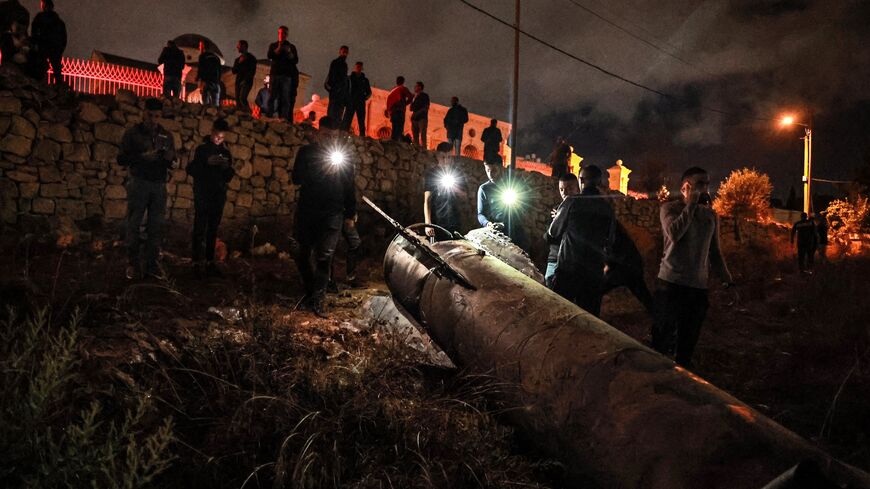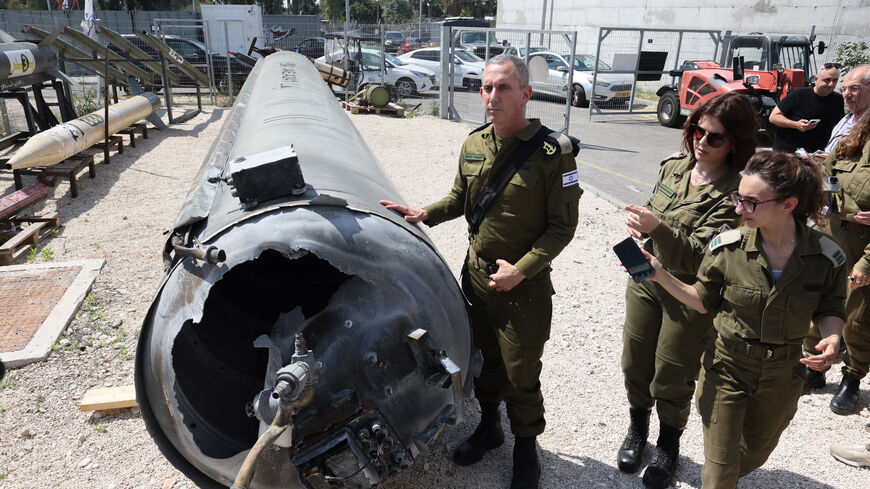Israel's cabinet remains uncertain about response to Iran attack
The Israeli cabinet adjourned hours before Yom Kippur without a decision on when and how to retaliate for Iran's recent missile barrage.

Israel's security cabinet failed to reach agreement Thursday night on retaliating against Iran for the Oct. 1 strike involving some 180 missiles.
Prime Minister Benjamin Netanyahu has vowed that Israel will retaliate for the attack, but so far, a decision on the nature and timing of a response has not been made. According to Ynet, and contrary to prior reports, the options for potential target or targets did not come up for a vote by all the security cabinet members, and the ministers did not formally task Netanyahu and Defense Minister Yoav Gallant with making a final decision themselves. Ynet suggested that a decision will be made close to the time of the attack to retain the surprise element.
The lack of a decision appears to have postponed Gallant's departure on Tuesday for Washington, where at the invitation of the Pentagon, he was to discuss Iran and Israel’s response. Netanyahu instructed Gallant to instead delay his visit until after he has had a chance to speak with President Joe Biden and after the security cabinet decides on a course of action.
Over the past 10 days, Israeli media have reported that Netanyahu and Gallant are considering several options, among them striking Iranian nuclear facilities, petrol installations, army bases, missile production facilities, arms depots and Iranian leaders. The Biden administration expressed its disapproval of the first option and has reservations about the second one.
Netanyahu and Biden spoke on Wednesday. Citing unnamed US and Israeli senior officials, Walla reported on Thursday that while no specific decision has been made on the retaliatory strike, the two leaders had reduced gaps on the issue. It added that Israeli and American senior officials had held several discussions prior to Netanyahu and Biden's conversation, including between Israeli Strategic Affairs Minister Ron Dermer and US national security adviser Jake Sullivan, on details of a possible Israeli strike.
"Dialogue is undergoing continuously, and we are listening to what the Americans are saying, while explaining to them the way we see and assess the situation from our side," an Israeli government spokesperson told Ynet after the call between Netanyahu and Biden. "Israel will do what is necessary to protect itself."
Addressing the press on Friday while in Laos, Secretary of State Antony Blinken said the Biden administration continues "to engage intensely to prevent broader conflict in the region, to bring all the hostages home, to get assistance to Gazans who so desperately need it and end the conflict, to reach a diplomatic solution in Lebanon, to support Israel’s right to defend itself against Iran and its terrorist proxies, to find a path to halt the cycle of violence and move toward a more integrated and prosperous Middle East."
Blinken added, "Unfortunately, what we have is, among other things, a so-called axis of resistance led by Iran that looks to create other fronts in different places. We’re working very hard through deterrence and through diplomacy to prevent that from happening."







